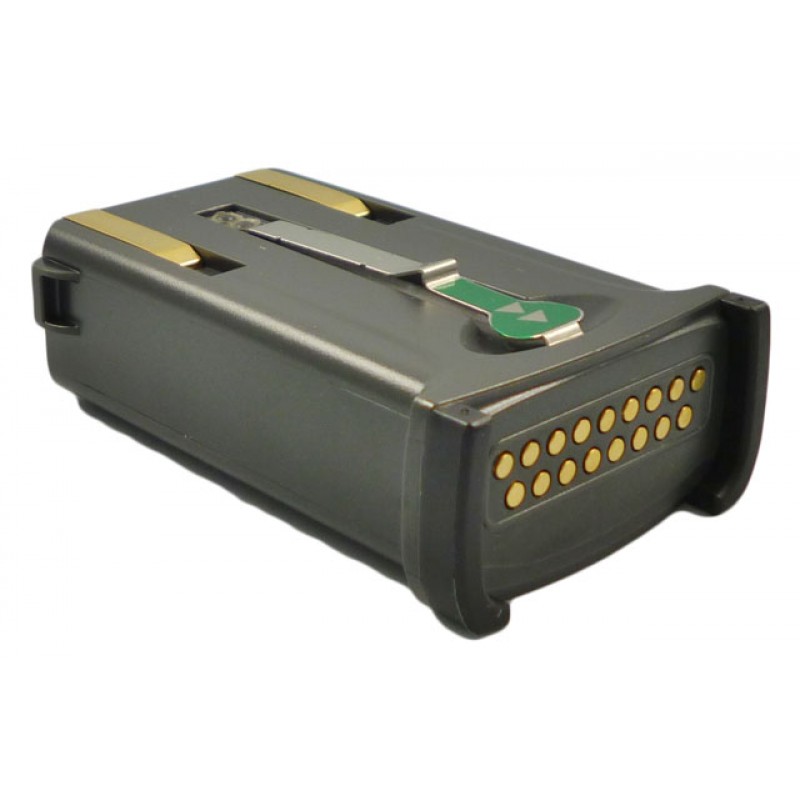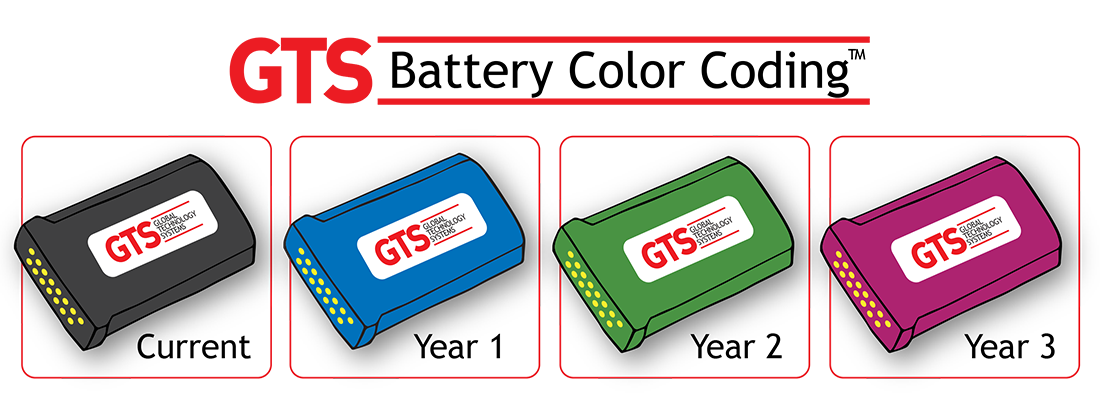Global Technology Systems Introduces Battery Color Coding
How old is the battery in your mobile computer? Some can’t answer that question and in that lies the problem. The greater the age in batteries the greater the chance of the battery not functioning properly; that being said it makes sense to have an easy way to distinguish the age of your battery. Global Technology Systems (GTS) is introducing Battery Color Coding, this service will allow you to easily distinguish the aging of your battery population and quickly determine the warranty status of your batteries. More importantly it will also allow you to identify, replace, and recycle the old batteries swiftly and efficiently. Each year GTS will be making different color batteries along with the standard OEM color. For example in 2017 (year 1) GTS will be making blue batteries, in 2018 (year 2) GTS will be making green batteries, in 2019 (year 3) GTS will be making pink batteries and so on. The colored batteries will have no additional cost from the standard OEM color.
Battery Color Coding will give you the following benefits:
- Cut Labor Costs:Â Eliminates staff downtime and productivity loss caused by mid-shift battery failures.
- Cut Battery Costs: Stock only healthy batteries in the appropriate quantities.
- Cuts Service Agreement Costs: Many mobile device “failures” aren’t a device problem at all but a bad battery issue, allowing you to significantly reduce repair requests and help desk calls.
Battery Types Explained: NiMH vs Li-Ion
 It’s still surprising to see that there are still NiMH (nickel–metal hydride) batteries being used in some non-industrial Bluetooth scanners
It’s still surprising to see that there are still NiMH (nickel–metal hydride) batteries being used in some non-industrial Bluetooth scanners
Cons of NiMH batteries include:
- NiMH suffers from “memory effect.” Memory effect describes the specific situation in which NiMH batteries gradually lose their maximum energy capacity if they are repeatedly recharged after being only partially discharged. The battery appears to “remember” the smaller capacity.
- High self-discharge rate. NiMH batteries lose their charge as they sit.
- It takes longer to charge them.
- Cannot operate at extreme temperatures. At extreme temperatures, NiMH voltage output will drop.
Advantages of NiMH:
- It’s cheaper.
Advantages of Li-Ion:
- Smaller and lighter.
- Faster recharge.
- Minimal discharge when not in use.
- Temperature tolerance. It can tolerate low temperature and warmer environments compared to NiMH cells.
- It is not susceptible to voltage depression, aka memory effect.





